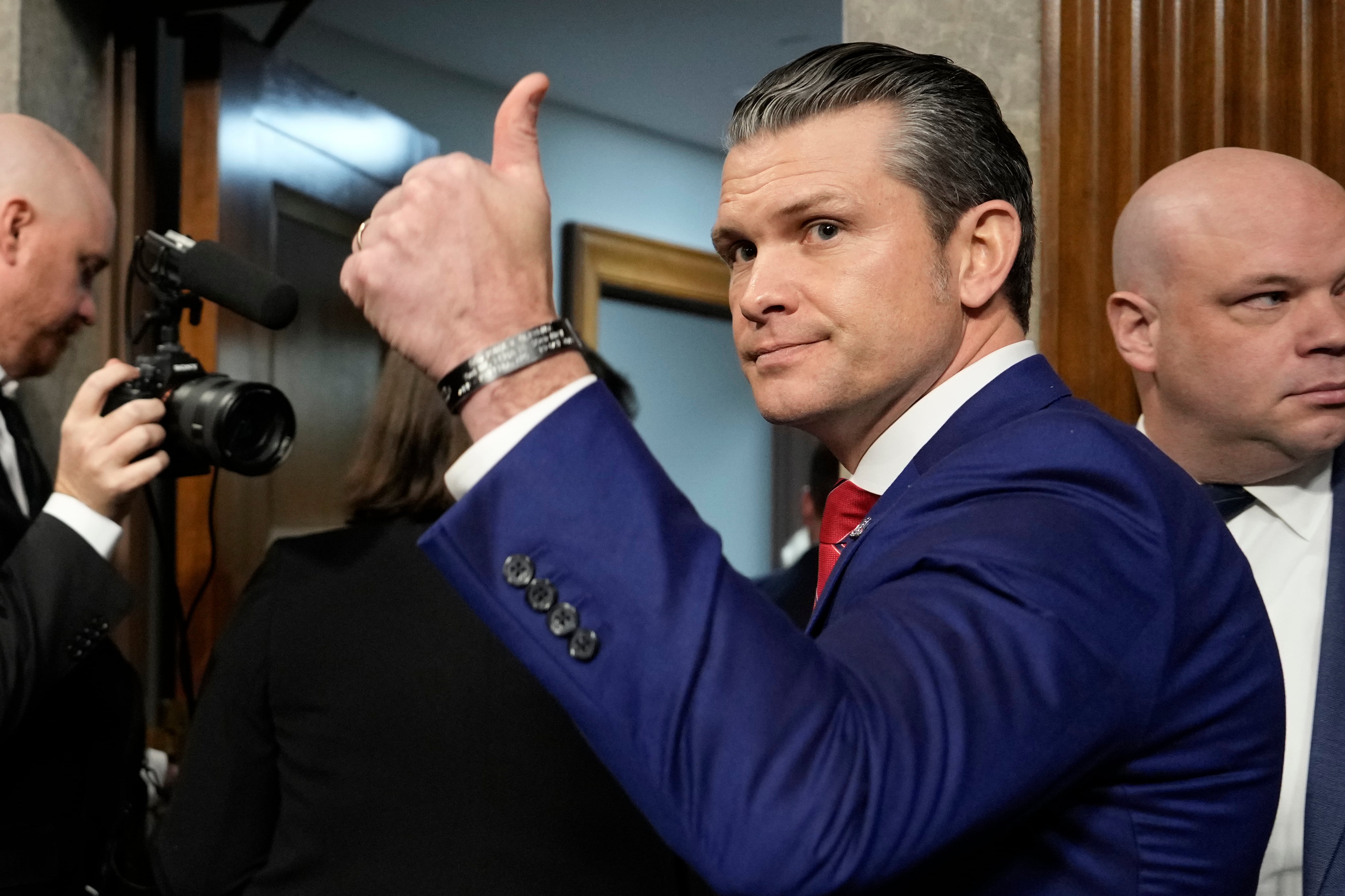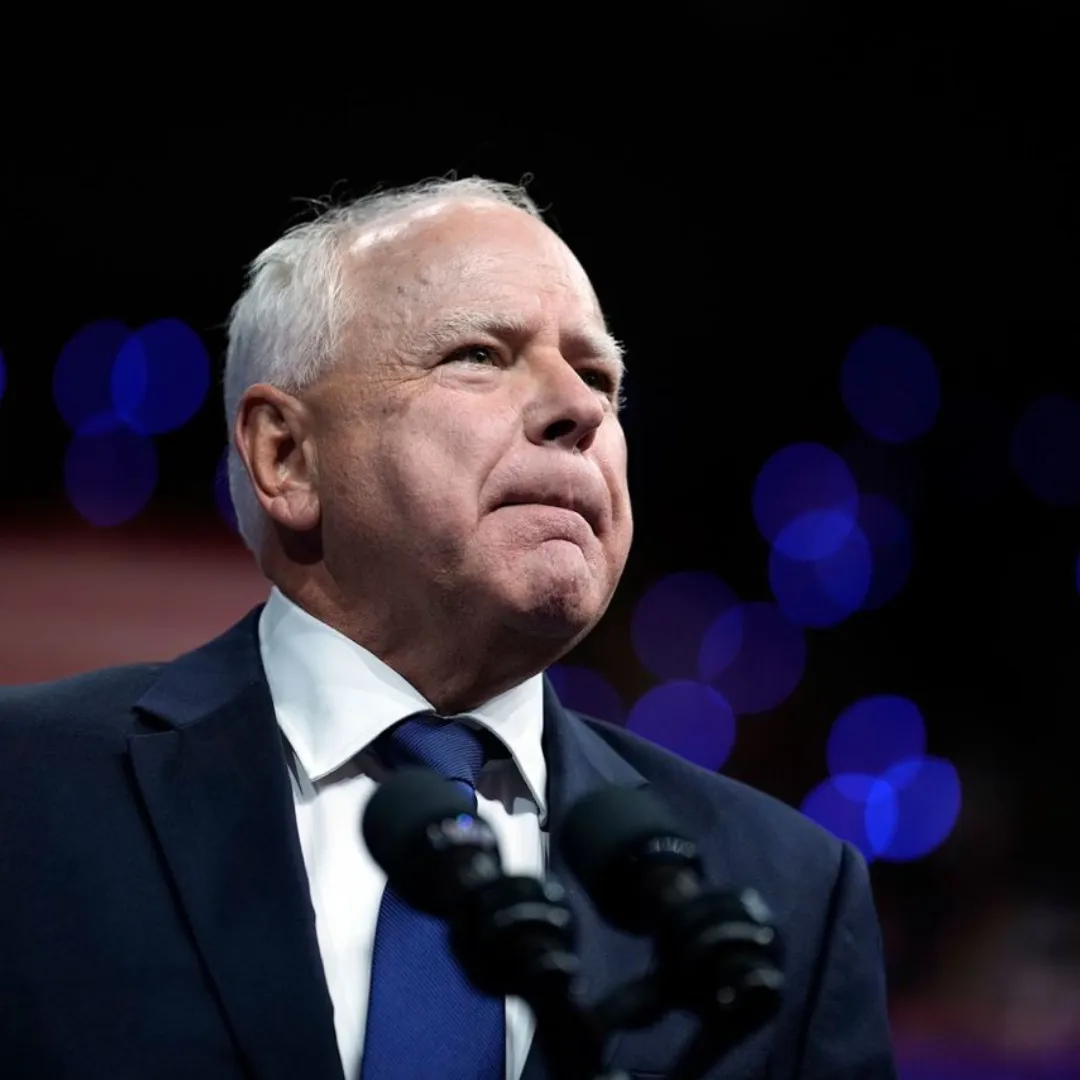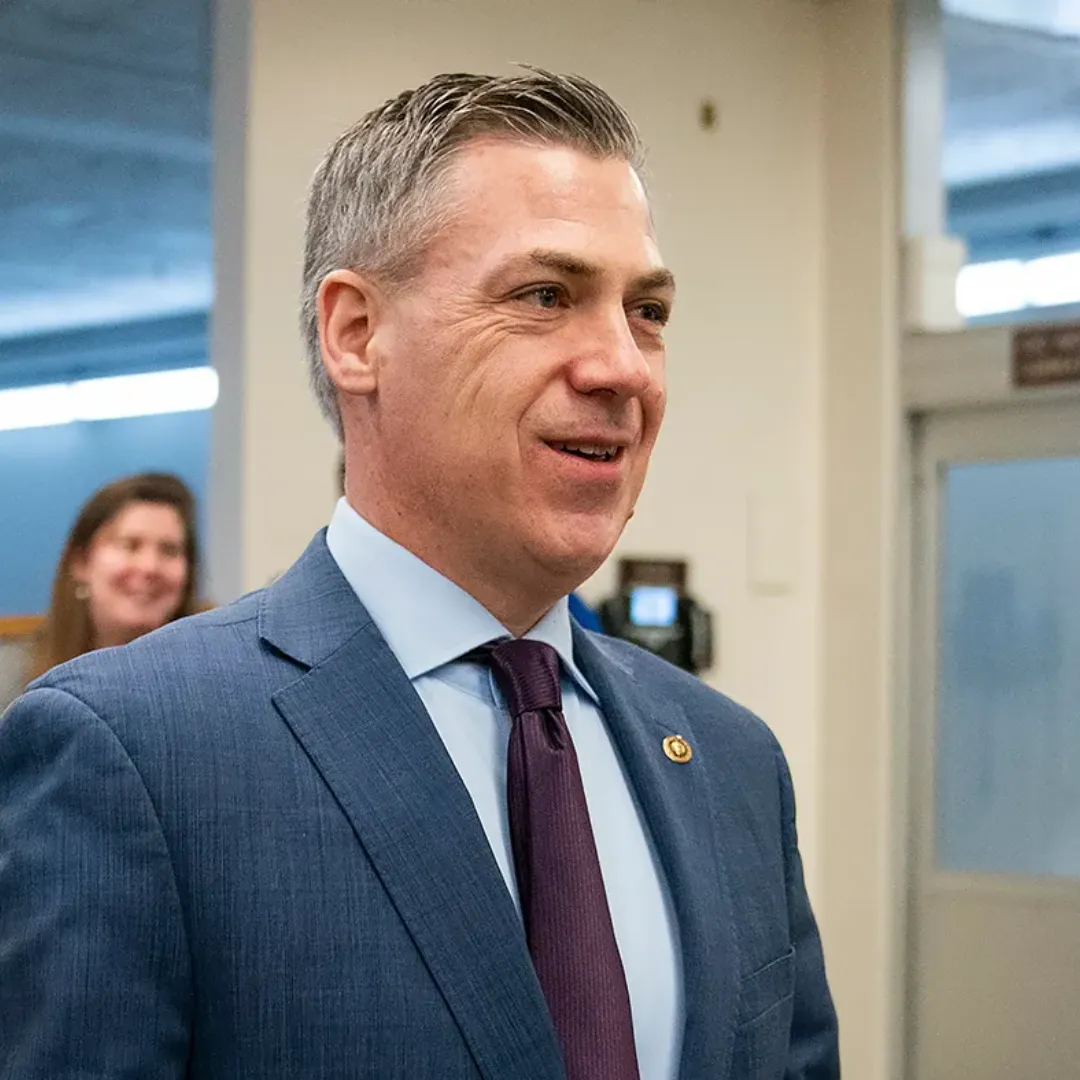
The controversy surrounding Defense Secretary Pete Hegseth and a Signal group chat leak has sent shockwaves through Washington, with political figures, national security officials, and even conservative commentators weighing in on the debacle. What began as a technical mishap—where journalist Jeffrey Goldberg was inadvertently added to a secure Signal chat—has exploded into a political firestorm.
As the Trump administration grapples with the fallout, the questions remain: Was there a significant security breach? And what are the consequences for those involved?
At the center of this controversy is Pete Hegseth, the embattled Defense Secretary, who has found himself forced to defend his actions after detailed messages from the Signal chat were revealed. In these messages, Hegseth, along with other senior officials from the Trump administration, including National Security Adviser Mike Waltz, discussed sensitive military operations, specifically an attack on the Houthis in Yemen.
What was meant to be a confidential discussion between top national security leaders quickly spiraled out of control when Goldberg, the editor-in-chief of The Atlantic, was accidentally added to the group.
Goldberg’s inclusion in the chat raised serious concerns about national security. While the White House insists that no classified information was shared, the release of the chat messages by The Atlantic—which included specific details about the timing of the airstrikes and the weapons used—has fueled fears that the breach could have jeopardized the safety of American personnel.
As the political fallout continues to unfold, Hegseth’s defense and the White House’s handling of the situation remain in the spotlight.
Hegseth’s reaction to the unfolding scandal has been one of defiance. On Tuesday, while in Hawaii, he responded to the growing backlash by downplaying the significance of the leak.
“Nobody’s texting war plans,” he insisted, adding, “I know exactly what I’m doing, exactly what we’re directing, and I’m really proud of what we accomplished.” His comments were strikingly similar to those made the previous day, where he stated that no one was “texting war plans,” before brushing off further questions.
Despite Hegseth’s confident declarations, the details shared in the Signal chat paint a different picture. According to the messages, Hegseth provided specific information regarding the airstrike in Yemen, detailing the timeline and the weapons to be used.
These are not the kinds of details one would expect to find in a casual conversation, especially in a setting meant to be secure. The fact that the journalist Goldberg was given access to such critical information raises serious questions about the handling of national security materials within the Trump administration.

On Wednesday, Goldberg directly refuted Hegseth’s denial. Appearing on CNN’s Kaitlan Collins Reports, Goldberg didn’t mince words when asked about the comments Hegseth made regarding the chat. “That’s a lie. He was texting war plans,” Goldberg stated.
“He was texting attack plans. When targets were going to be targeted; how they were going to be targeted; who was at the targets; when the next sequence of attacks was happening.”
Goldberg’s accusations have intensified the scrutiny surrounding Hegseth and his colleagues in the administration. The fact that Hegseth shared such sensitive details on an unsecured platform like Signal has left many questioning whether the Trump administration fully understands the importance of protecting classified information.
If this breach had not been exposed by The Atlantic, how many other sensitive discussions were at risk of being compromised?
Hegseth’s defense and Goldberg’s retort have created a political clash, with both sides digging in their heels. For the White House, the emphasis has been on reassuring the public that no classified information was disclosed.
But the facts emerging from the released messages tell a different story—one where sensitive national security information was readily available to a journalist, raising alarm bells about the security practices at the highest levels of government.

The political fallout has been swift and intense. While The Atlantic’s reporting has fueled much of the outrage, the political fallout from this breach has galvanized Democratic leaders, with calls for accountability growing louder by the day.
Senator Tammy Duckworth (D-Ill.), a combat veteran who has long been an advocate for national security, was one of the first to speak out.
“Pete Hegseth is a f‑‑‑ing liar,” Duckworth said in a post on social media. “This is so clearly classified info he recklessly leaked that could’ve gotten our pilots killed. He needs to resign in disgrace immediately.”
Duckworth’s words struck a chord with many who saw the leak as a grave violation of trust. Her call for Hegseth’s resignation quickly gained traction, with at least 16 Democratic leaders echoing her demands.
In addition to Duckworth, Representative Hakeem Jeffries (D-N.Y.) and Senate Minority Leader Chuck Schumer (D-N.Y.) have also called for Hegseth’s immediate dismissal. Jeffries described the leak as a "reckless" disclosure of sensitive military plans and argued that the consequences could have been catastrophic if the wrong parties had gained access to the information.
"He should be fired immediately," Schumer added, joining in the chorus of those demanding accountability.
While the scandal has primarily driven outrage from the left, conservative commentators have also begun to weigh in on the situation, albeit with a slightly different perspective. Tomi Lahren, a conservative political commentator and Fox News contributor, made her voice heard amid the growing calls for accountability.
In a post on the social platform X, Lahren argued that President Trump’s administration should "admit the F up and move on." However, Lahren stopped short of endorsing any specific actions against those involved in the breach.
"Trying to wordsmith the hell outta this Signal debacle is making it worse. It was bad. And I’m honestly getting sick of the whataboutisms from my own side," Lahren wrote. “What’s good for the goose is good for the gander. Admit the F up and move on.”
Lahren’s take was clear: while the mistake was serious, she felt the need for the administration to acknowledge the error and move past it without unnecessary drama.
In another post, Lahren argued against firing anyone over the incident. “I don’t want to see anybody fired or for anybody to resign over this. It was an F up,” she stated. “The first and most simple way to address it is just to acknowledge it was an F up. That’s it. Don’t let the instinct to cover your ass and save face even slightly taint an administration filled with accomplishment and early success!!”
Lahren’s perspective reflects a larger trend among some conservative voices who view the controversy as a distraction rather than a catastrophe. While many Democrats and national security experts see the leak as a serious breach, some conservatives are focused on defending the broader achievements of the Trump administration and downplaying the severity of the leak.

The White House’s response to the incident has been one of defense and deflection. Press Secretary Karoline Leavitt has continually stated that no classified information was shared in the Signal chat, despite mounting evidence to the contrary.
In her briefing, she emphasized that the administration was working with technical experts, including Musk’s team at DOGE, to investigate how the journalist gained access to the chat.
While the White House has stood by Waltz and Hegseth, President Trump has continued to downplay the significance of the released texts. “Really not a big deal,” Trump told reporters, minimizing the importance of the revelations.
Trump’s response mirrors the administration’s overall approach to the scandal—dismissive of the severity and focusing on protecting their political interests.
The Signal chat scandal raises fundamental questions about the handling of national security information in the Trump administration. The breach of protocol and the subsequent efforts to downplay the situation highlight the administration’s lack of accountability on key national security matters.
Whether or not the leak was accidental, it underscores the growing risks to American security posed by the careless handling of sensitive information.
As the investigation into the Signal mishap continues, it remains to be seen whether those responsible for the breach will face real consequences. With both political parties now weighing in and calls for Hegseth’s resignation growing louder, it is clear that this scandal will continue to reverberate in Washington.
Whether it’s a minor mistake or a catastrophic error, the political fallout will likely linger for some time.

This scandal is a stark reminder of the fragility of national security in the digital age. What started as a small oversight—a journalist being added to a group chat—has escalated into a significant national security issue.
The handling of this breach will likely define the Trump administration’s legacy on national security and could have long-term ramifications for how classified information is managed in the future.
As Washington continues to grapple with the fallout from the Signal chat leak, one thing is clear: the consequences of carelessness, even when unintentional, can be profound. Whether or not anyone is fired or held accountable, the damage has been done.
The real question now is whether the administration can restore trust in its handling of national security or whether this will become yet another scandal that defines its tenure.



